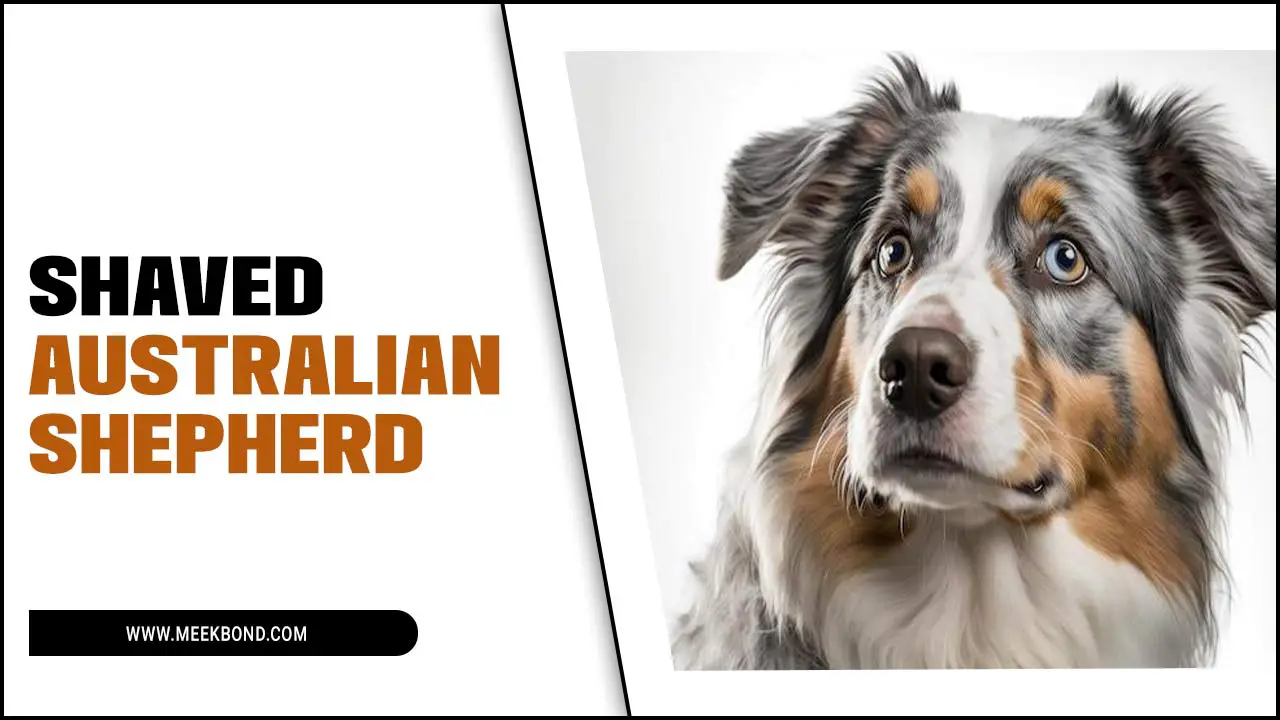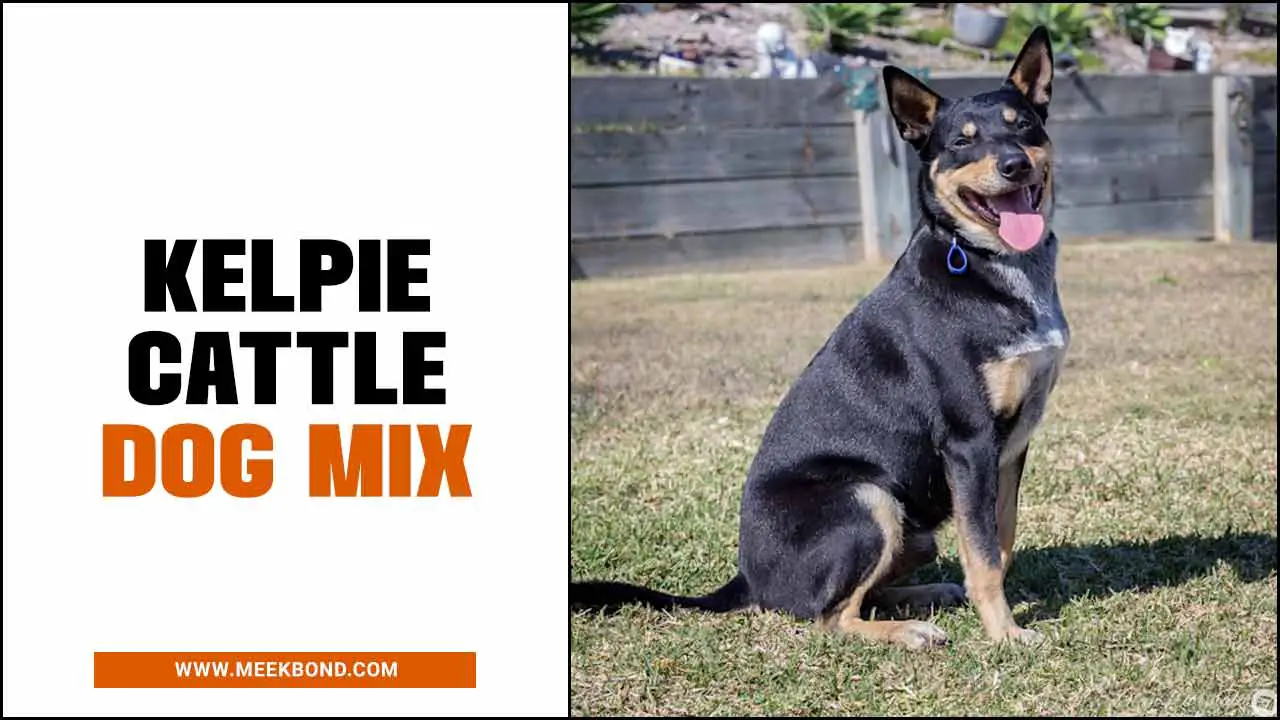Selling a puppy is an exciting time for any breeder or pet owner. However, an umbilical hernia can create uncertainty and concern about the potential impact on the sale.
The abdominal muscles have a small hole at the spot where the umbilical cord was attached, which leads to an umbilical hernia. This can cause a small bulge near the belly button area, a common condition in many breeds. While it may seem concerning to potential buyers, it is important to understand that an umbilical hernia is typically not a severe medical condition and can be treated with simple surgery.
Here we’ll cover everything you need to know about selling a puppy with an umbilical hernia – from understanding what it is and how to diagnose it to treatment options available. So without further ado, let’s dive into the details.
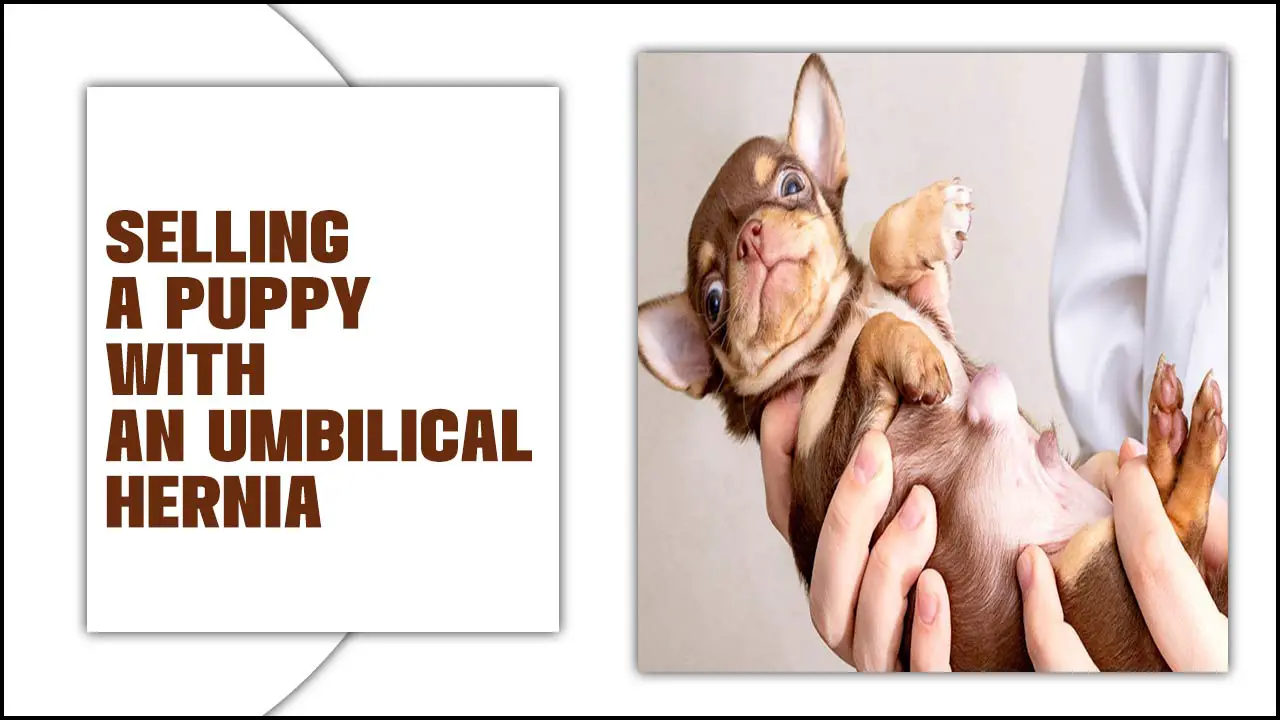
Understanding What An Umbilical Hernia Is In Puppies
Understanding what an umbilical hernia is in puppies is important when selling a puppy with this condition. An umbilical hernia occurs when a small opening in the abdominal muscles near the belly button allows the intestines or other organs to protrude. In most cases, it is a genetic condition and is not typically painful or harmful to the puppy.
However, it is still important to disclose this information to potential buyers so they are aware of the condition. Veterinarians recommend monitoring puppies with umbilical hernias and performing surgical repair in some cases. By providing accurate information about the condition and any necessary treatment, you can ensure that potential buyers are well-informed and can make an informed decision about purchasing the puppy.
Selling A Puppy With An Umbilical Hernia – Let’s Know How Can You Do This
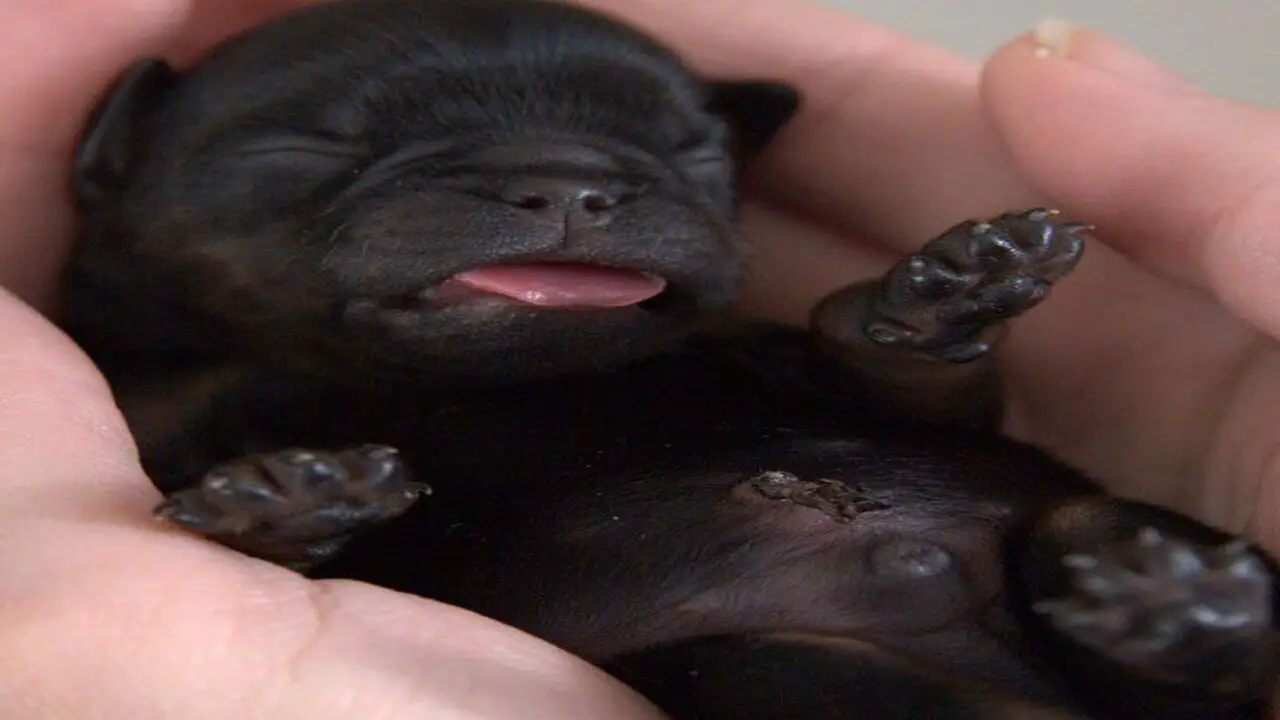
When selling a puppy with an umbilical hernia, it is important to provide transparency and accurate information to potential buyers. Here are some guidelines to follow. By being upfront and transparent about the umbilical hernia. You can ensure that potential buyers have all the necessary information to decide about purchasing your puppy.
- Clearly disclose the presence of the umbilical hernia in your puppy’s description or advertisement.
- Provide detailed information about the hernia, such as its size, location, and any potential complications it may cause.
- Offer to provide veterinary records and documentation related to the diagnosis and treatment of the hernia.
- Discuss any recommended or necessary medical interventions, such as surgery that may address the hernia.
- Prepare to answer questions and address potential buyers’ concerns about the puppy’s health or future well-being.
Disclosing The Presence Of An Umbilical Hernia To Potential Buyers
When selling a puppy with an umbilical-hernia, it is important to disclose this information to potential buyers. An umbilical hernia occurs when there is a small opening or weakness in the abdominal muscles near the belly button. Allowing a portion of the intestines or other organs to protrude. While most umbilical hernias in puppies are not life-threatening and can often resolve independently as the puppy grows.
It is still essential to be transparent about the condition. This allows potential buyers to make an informed decision. And ensures that they are prepared for any necessary veterinary care or surgical intervention that may be required. By being honest about the presence of an umbilical hernia. Sellers can foster trust with buyers and prioritize the puppy’s well-being above all else.
Explaining The Potential Risks And Complications Of An Umbilical Hernia In Puppies

Selling a puppy with an umbilical-hernia can come with potential risks and complications that potential buyers should be aware of. An umbilical hernia is a condition where the abdominal organs protrude through the abdominal wall near the belly button. While umbilical hernias are generally not life-threatening, they can cause discomfort for the puppy and may require surgical intervention to correct.
It’s important to inform potential buyers about the condition and provide them with all relevant information, including any medical history or veterinary recommendations. Ultimately, it is up to the buyer to decide if they are willing to care for a puppy with an umbilical hernia and potentially cover any associated medical costs.
Providing Information On Treatment Options For Umbilical Hernias In Puppies
If you are selling a puppy with an umbilical-hernia, it is important to provide potential buyers with information on treatment options. Here are some key points to include. By providing this information, you can help potential buyers decide whether a puppy with an umbilical hernia is the right choice for them.
- Umbilical hernias in puppies are relatively common and usually pose no immediate threat to the puppy’s health.
- In most cases, umbilical hernias will close independently as the puppy grows. However, this process can take several months.
- If the hernia does not close on its own or if it is causing discomfort or other issues for the puppy, surgical intervention may be necessary.
- Surgery for umbilical hernias in puppies is typically a simple procedure a veterinarian can do. It involves closing the hole in the abdominal wall and securing any protruding tissue back inside.
- We should note that surgeons can repair umbilical hernias but may sometimes recur. This is something potential buyers should be aware of.
Discussing The Cost Of Surgery And Post-Operative Care For Umbilical Hernias
Selling a puppy with an umbilical-hernia can concern many potential buyers. It is important to be transparent about the condition and provide information about the surgery cost and post-operative care. The surgery cost for an umbilical hernia can vary depending on factors such as the size and location. It is recommended to consult a veterinarian to get an accurate estimate for the surgical procedure.
In addition to the surgery cost, it is also important to consider the post-operative care required for the puppy. This may include limiting physical activity, administering medication, and monitoring the incision site for signs of infection or complications. By discussing these details with potential buyers, you can ensure they are fully informed about the responsibilities and costs of owning a puppy with an umbilical hernia.
Tips For Finding Responsible And Knowledgeable Buyers For A Puppy With An Umbilical Hernia
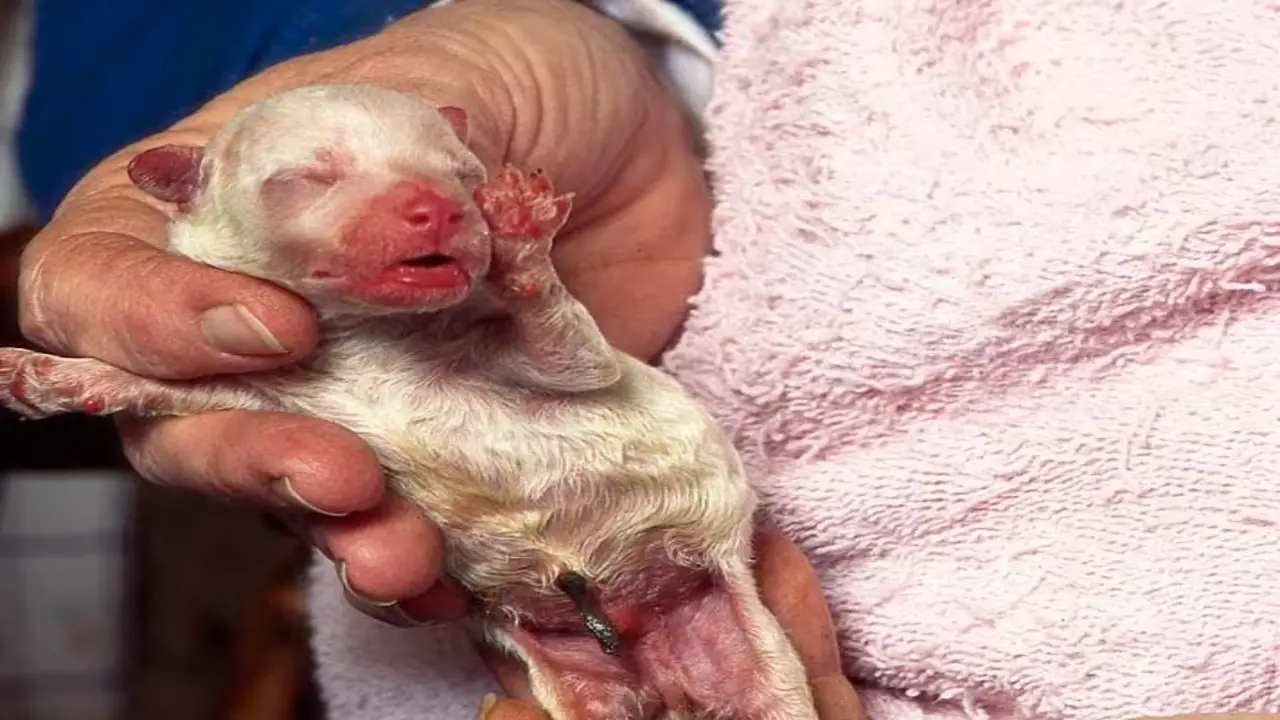
Selling a puppy with an umbilical-hernia can present some unique challenges. Still, with the right approach, you can find responsible and knowledgeable buyers who will provide the necessary care for the puppy. Here are some tips to help you in your search:
- Be upfront about the condition: When advertising the puppy, clearly disclose that it has an umbilical hernia. Provide accurate information about the condition and any required treatments or surgeries that the patient may need.
- Highlight the positive qualities of the puppy: Emphasize the puppy’s good health, temperament, and other positive traits to show potential buyers that despite the umbilical hernia, it is still a valuable and lovable pet.
- Seek out breed-specific organizations or forums: Look for online communities or organizations dedicated to the specific breed of your puppy. These groups may have members knowledgeable about umbilical hernias and may be more willing to consider purchasing a puppy with this condition.
- Request references from potential buyers: Ask interested buyers for references from their veterinarians or previous pet owners. This will help ensure that they gain experience in caring for dogs and understand the responsibilities involved in managing a dog with a medical condition.
- Consider offering a discounted price: To attract potential buyers, you may want to offer a slightly lower price than puppies without any health issues. However, it’s essential not to undervalue your puppy’s worth or compromise on finding a responsible owner who will provide proper care.
Remember, finding the right buyer may take time and patience. It’s crucial to prioritize the puppy’s well-being above all else and ensure it goes to a loving home where its medical needs will be met.
Ensuring Proper Documentation And Transparency In The Selling Process

When selling a puppy with an umbilical-hernia, it is important to ensure proper documentation and transparency throughout the selling process. This includes disclosing the presence of the umbilical hernia to potential buyers and providing them with all relevant information about the condition.
To confirm the diagnosis and provide potential buyers with peace of mind, obtaining a veterinary evaluation and any necessary medical records is also recommended. By being transparent and upfront about the umbilical hernia, you can build trust with potential buyers and ensure they are fully informed before purchasing the puppy.
Conclusion
Selling a puppy with an umbilical hernia requires careful consideration and transparency. Educating potential buyers about the condition, its implications, and the available treatment options is important. Before selling a puppy with an umbilical-hernia, it is crucial to have a veterinary examination to determine the severity of the hernia and any associated health risks.
It is also essential to provide accurate information about the hernia, including its size, potential complications, and the recommended course of action. By being honest and transparent with buyers, you can ensure the puppy finds a loving and responsible home where its hernia can be properly managed and treated.
Frequently Asked Questions
Should You Get A Puppy With Umbilical Hernia?
Since umbilical hernias are common in puppies and usually not a cause for concern, it’s important to consult a veterinarian before purchasing one. While surgery may be necessary for large or uncomfortable hernias, weigh the potential cost and care required before deciding.
Can You Breed A Dog Who Has An Umbilical Hernia?
We do not recommend breeding a dog with an umbilical hernia. This condition can be genetic and passed down to offspring, potentially leading to health issues. It’s crucial to consult with a veterinarian before making any breeding decisions.
Can You Leave An Umbilical Hernia Untreated In Dogs?
Leaving an untreated umbilical hernia in dogs can result in complications like intestinal obstructions. Surgery is the most common treatment for this condition, but it’s important to consult a veterinarian for guidance. Regular check-ups help catch and address potential health issues early.
Should A Breeder Sell A Puppy With A Hernia?
Veterinarians generally do not recommend breeders to sell puppies with hernias. Hernias can lead to health issues and may require surgery for correction. Breeders should be transparent about medical conditions or health concerns with potential buyers. Buyers must ask questions and conduct research before purchasing a puppy.
Is It Ethical For Breeders To Sell Puppies With Umbilical Hernias?
Selling puppies with umbilical hernias is not necessarily unethical. Responsible breeders should disclose health issues, and buyers should know the costs and risks associated with treatment. Ultimately, it’s up to the buyer to decide if they want to care for a puppy with an umbilical hernia.

Aquarium passion is all about connecting with the aquatic life and providing education to the public on the importance of these creatures. We showcase a wide variety of marine life through our exhibits as well as working with schools to provide unique learning opportunities for students of all ages.

